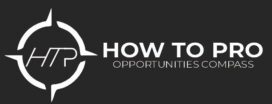
How to Get a Remote Job in 7 Days (Even If You Have No Experience)
How to Get a Remote Job in 7 Days (Even If You Have No Experience)
Introduction
- Why remote jobs are booming in 2025
- Yes, you can get hired in 7 days—here’s how
Day-by-Day Breakdown to Landing Your First Remote Job
- Day 1: Set Your Mindset and Define Your “Why”
- The power of intentionality
- Rewriting your internal narrative about “experience”
- Day 2: Choose the Right Remote-Friendly Skill
- In-demand skills you can learn fast
- Remote jobs that don’t require a degree
- Day 3: Build a Basic Portfolio (Even If You’ve Never Worked Before)
- Create mock projects
- Use portfolio builders like Notion, Wix, and GitHub
- Day 4: Create a Winning Resume and Cover Letter
- Resume templates for beginners
- Cover letter hacks that get attention
- Day 5: Set Up Your Online Profiles Like a Pro
- LinkedIn optimization
- Freelance platform profiles (Upwork, Fiverr, PeoplePerHour)
- Day 6: Apply for Jobs That Don’t Require Experience
- Remote job boards to explore
- Smart application tactics
- Day 7: Follow Up, Pitch, and Interview Confidently
- Crafting cold pitches
- Interview prep tips for beginners
High-Paying Remote Jobs That Require No Experience
- Freelance Writing
- Customer Support
- Social Media Manager
- Data Entry
- Virtual Assistant
- Online Tutor
Free Resources to Upskill Fast
- Coursera, HubSpot, LinkedIn Learning
- Google Career Certificates
- YouTube Channels for Quick Learning
Mistakes to Avoid When Applying for Remote Jobs
- Using generic resumes
- Applying without tailoring
- Not following up
Tools and Platforms That Help You Stand Out
- Canva (resume design)
- Notion (portfolio)
- Loom (video pitch)
- Grammarly (writing polish)
Success Stories: Real People, Real Results
- Case study 1: Customer support role in 6 days
- Case study 2: Landed first freelance gig via cold email
Top Remote Job Boards for Beginners
- We Work Remotely
- Remote OK
- JustRemote
- Working Nomads
- Remotive
Conclusion
- Recap and encouragement
H2: FAQs
- Can I really get a remote job without experience?
- How can I convince employers to hire me?
- Which remote jobs are the easiest to get into?
- Should I work for free to gain experience?
- How much can I earn as a beginner?
How to Get a Remote Job in 7 Days (Even If You Have No Experience)
Introduction

Let’s face it—remote work isn’t just a trend. It’s a revolution.
Whether you’re a fresh graduate, a stay-at-home parent, or someone who’s been stuck in a job rut, you can get a remote job in 7 days—even if you have zero experience. That’s not an exaggeration. It’s a matter of strategy, focus, and action.
This guide walks you through a day-by-day blueprint to go from “no clue where to start” to “I just got my first job offer!”
So grab your coffee (or tea), clear your schedule, and let’s get you hired.
Day-by-Day Breakdown to Landing Your First Remote Job
Day 1: Set Your Mindset and Define Your “Why”
The Power of Intentionality
Before jumping into job boards and resumes, take a step back. Ask yourself: Why do I want a remote job?
Is it the freedom to work from anywhere? The chance to escape toxic office culture? Or maybe it’s the flexibility to raise your kids or travel?
When you know your “why,” your efforts become focused—and more effective.
Rewriting Your Internal Narrative
Stop saying: “I don’t have experience.”
Start saying: “I’m learning quickly, and I have transferable skills.”
Confidence sells. If you don’t believe in your value, no employer will either.
Day 2: Choose the Right Remote-Friendly Skill
In-Demand Skills You Can Learn Fast
Here are entry-level, high-paying skills you can pick up with a few hours of daily practice:
- Social Media Management
- Email Marketing
- SEO (Search Engine Optimization)
- Customer Support
- Virtual Assistance
- Transcription
Remote Jobs That Don’t Require a Degree
Here’s a quick cheat sheet:
- Social Media Manager: Manage IG, TikTok, Pinterest accounts.
- Virtual Assistant: Do admin work remotely.
- Freelance Writer: Write blog posts, emails, product descriptions.
- Online Tutor: Teach what you know—math, English, music.
- Customer Support Rep: Work chat, email, or phone.
Day 3: Build a Basic Portfolio (Even If You’ve Never Worked Before)
Create Mock Projects
Don’t wait for a real client. Create your own case studies.
Example:
- Write 3 blog posts for a pretend company.
- Redesign a website UI using Figma.
- Record a mock customer service call.
Use Portfolio Builders
You don’t need to code. Use:
- Notion – Great for simple portfolios
- Wix – Drag-and-drop website builder
- GitHub – Perfect for developers
- Behance – Best for designers
Day 4: Create a Winning Resume and Cover Letter
Resume Templates for Beginners
Use clean, modern templates from:
Tailor your resume for each job using relevant keywords. Even if you lack job experience, showcase:
- Projects
- Soft skills
- Tools you’ve learned
- Freelance work or volunteer gigs
Cover Letter Hacks
- Always customize.
- Mention the company by name.
- Tell them how you’ll solve their problem.
- End with a CTA like: “Let’s discuss how I can help your team.”
Day 5: Set Up Your Online Profiles Like a Pro
LinkedIn Optimization
Update your:
- Profile photo (clear, smiling face)
- Headline: “Remote Virtual Assistant | Organized | Client-Focused”
- About: Use first-person voice. Share your why.
Add projects and ask for testimonials, even from classmates or colleagues.
Freelance Platform Profiles
Create accounts on:
Tips:
- Use relevant keywords in your title (e.g. “Beginner-Friendly Social Media VA”)
- Add an intro video with Loom
- Offer low-cost gigs to get your first 5-star reviews
Day 6: Apply for Jobs That Don’t Require Experience
Remote Job Boards to Explore
Start here:
Filter by:
- Entry-level
- No experience required
- Customer service / data entry / marketing
Smart Application Tactics
- Apply within 24 hours of posting
- Use job title keywords in your resume
- Email the hiring manager with a value-based pitch
Day 7: Follow Up, Pitch, and Interview Confidently
Crafting Cold Pitches
Send a cold email like:
“Hey [Name], I saw your company is growing. I’m a fast learner passionate about [X]. I created [a portfolio piece] that might help your team. Would love to support your work!”
Attach your portfolio and a short Loom video.
Interview Prep for Beginners
Practice:
- Telling your story in 60 seconds
- Why remote work is your choice
- How you handle communication & deadlines
- Questions for them like: “What’s the culture like on your team?”
vHigh-Paying Remote Jobs That Require No Experience
Here are some high-paying remote jobs that require little to no experience. These are perfect for beginners who want to start working remotely but lack professional experience.
Freelance Writing
Writing is one of the easiest remote jobs to break into. You can write for blogs, websites, email newsletters, social media, and even eBooks. Writing requires no formal experience—just a passion for words and a solid understanding of grammar and storytelling.
- What You’ll Do: Create blog posts, articles, product descriptions, and social media content.
- How to Get Started: Sign up for platforms like ProBlogger or Contena, and start applying for entry-level writing gigs. You can also start your blog to showcase your writing skills and build a portfolio.
- Average Pay: $20–$50 per article depending on length and niche, with more advanced writers earning $100+ per article.
Customer Support
Customer service is a great starting point for remote work. Companies often hire people to assist customers through chat, email, or phone.
- What You’ll Do: Answer customer inquiries, provide troubleshooting assistance, and offer product recommendations.
- How to Get Started: Look for remote customer support roles on job boards like We Work Remotely and Remote OK.
- Average Pay: $14–$20/hour for entry-level positions, with opportunities for raises and advancement.
Social Media Manager
If you’re already active on social media, why not get paid to manage other people’s accounts? Social media managers are responsible for creating content, scheduling posts, interacting with followers, and growing online communities.
- What You’ll Do: Manage content calendars, engage with followers, analyze social media metrics, and run paid ad campaigns.
- How to Get Started: Learn the basics of social media marketing using free resources like Google Digital Garage and HubSpot Academy. Offer your services to small businesses for free or at a low rate to build a portfolio.
- Average Pay: $30,000–$60,000/year, depending on experience and the size of the company.
Data Entry
Data entry is one of the simplest remote jobs you can start with. It involves entering information into spreadsheets, databases, or content management systems.
- What You’ll Do: Input data, update spreadsheets, manage records, and ensure that information is accurate and up-to-date.
- How to Get Started: Look for positions on job boards like FlexJobs and Remote.co. You can also search for freelance data entry gigs on platforms like Upwork.
- Average Pay: $15–$20/hour, depending on the complexity of the work.
Virtual Assistant
Virtual assistants (VAs) perform a variety of administrative tasks for clients, ranging from scheduling appointments to managing emails and handling customer service.
- What You’ll Do: Manage calendars, organize emails, arrange travel plans, and assist with customer inquiries.
- How to Get Started: Sign up for VA platforms like Belay, Time Etc, and start looking for entry-level VA positions.
- Average Pay: $25,000–$55,000/year, depending on your skill level and specialization.
Online Tutor
Teaching English, math, or other subjects online is a great way to earn money without needing a degree. Platforms like VIPKid and Preply connect teachers with students worldwide.
- What You’ll Do: Conduct online lessons in subjects you’re passionate about, such as languages, math, or science.
- How to Get Started: Sign up on platforms like Outschool or VIPKid, create your profile, and start teaching.
- Average Pay: $10–$30/hour depending on the platform and subject matter.
Free Resources to Upskill Fast
Even if you’re just starting out, there are plenty of free resources to help you build the skills needed for remote jobs.
- Coursera – Offers free courses from top universities in subjects like business, tech, marketing, and more.
- HubSpot Academy – Free certifications in digital marketing, social media, content strategy, and more.
- Google Career Certificates – Offers free, 100% online courses that can help you land jobs in data analytics, IT support, project management, and UX design.
- LinkedIn Learning – Offers free courses on remote work skills, such as Excel, business writing, and communication.
- YouTube Channels – There are hundreds of free tutorials on subjects like coding, social media management, design, and marketing.
Mistakes to Avoid When Applying for Remote Jobs
It’s easy to make a few rookie mistakes when applying for remote jobs, especially if you’re new to the remote work world. Here are some common pitfalls to avoid:
Using Generic Resumes
Sending out the same resume to every job application is a big mistake. Tailor your resume to each job description by using relevant keywords. Highlight skills that match the job requirements.
Applying Without Tailoring Your Application
Don’t use a generic cover letter. Personalize it by mentioning the company’s goals and how you can help them achieve them.
Not Following Up
Employers get hundreds of applications. Follow up with a polite email 3–5 days after submitting your application to show initiative and interest.
Tools and Platforms That Help You Stand Out
Canva (Resume Design)
Create beautiful, professional resumes and portfolios in minutes with Canva. Their free templates make it easy to stand out from other applicants.
Notion (Portfolio)
Use Notion to build an organized, easy-to-navigate online portfolio, even if you don’t have technical experience.
Loom (Video Pitch)
Sending a video pitch through Loom is a great way to make your application stand out. It’s personal, engaging, and shows confidence.
Grammarly (Writing Polish)
If you’re applying for a writing job or just want to perfect your cover letter, Grammarly can help you ensure your writing is clear, error-free, and professional.
Success Stories: Real People, Real Results
Case Study 1: Customer Support Role in 6 Days
Anna, a stay-at-home mom with no experience, applied for a remote customer support role on We Work Remotely. Within 6 days, she landed an interview and was hired the same week. By customizing her resume and highlighting transferable skills like multitasking, Anna was able to secure her first remote role.
Case Study 2: Landed First Freelance Gig via Cold Email
John, a beginner writer, sent a cold email to a small business offering his writing services. He attached a few mock writing samples created for practice. The business owner hired him for a blog post within 48 hours. John now has a steady stream of clients, all because he took the initiative and pitched himself.
Top Remote Job Boards for Beginners
Here are some top platforms to help you find remote jobs:
- We Work Remotely – A popular job board for remote roles in tech, marketing, customer support, and more.
- Remote OK – Offers listings for remote jobs in a variety of fields.
- JustRemote – A curated remote job board for beginners and experienced professionals alike.
- Working Nomads – Find remote jobs in programming, marketing, design, and more.
- Remotive – Offers remote job listings across industries like IT, marketing, customer support, and design.
Conclusion
Getting a remote job in just 7 days is 100% possible—even if you have no prior experience. By focusing on the right skills, creating a tailored resume and portfolio, and applying to jobs on the best platforms, you can set yourself up for success. Whether you’re interested in freelancing, customer support, or social media management, the opportunities are endless.
Remember, the most important step is to take action. Your dream remote job is within reach—now go for it!
Also Read: Top 10 Highest Paying Remote Jobs in 2025 You Can Start – No Degree Required
FAQs
1. Can I really get a remote job without experience?
Yes! Many companies prioritize skills and motivation over experience. You can start with entry-level roles and build your experience as you go.
2. How can I convince employers to hire me?
Highlight transferable skills, show enthusiasm, and demonstrate your willingness to learn. Tailor your resume and cover letter to each position.
3. Which remote jobs are the easiest to get into?
Customer support, data entry, and virtual assistance are often the easiest entry points for beginners.
4. Should I work for free to gain experience?
Offering free work as a volunteer or for a reduced rate can help you build a portfolio, but avoid working for free long-term. Use it as a stepping stone.
5. How much can I earn as a beginner?
Salaries for remote jobs vary, but beginners typically earn between $20,000 and $50,000 annually, depending on the job and industry.
Call to Action: Ready to land your first remote job? Start by signing up on top job boards, building your resume, and applying today. You’ve got this!








